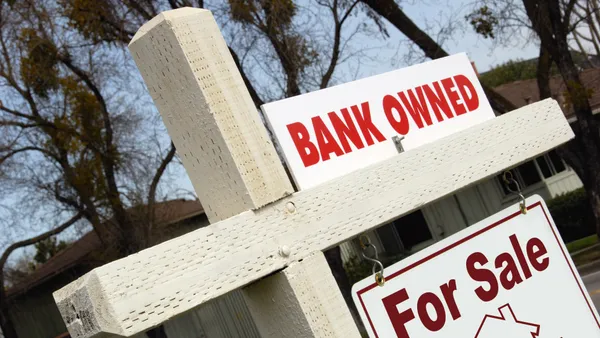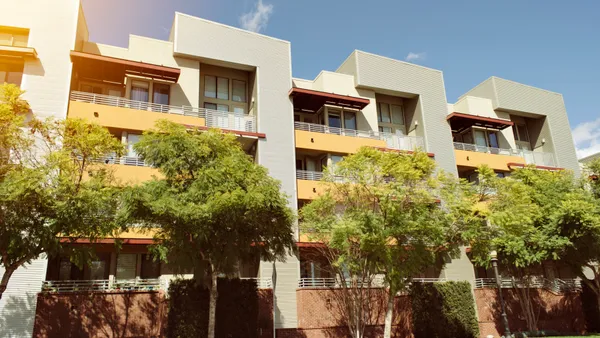MAA continues to face massive levels of supply in its Sun Belt markets, pushing same-store net operating income and property revenues down year over year. However, outgoing CEO Eric Bolton struck a hopeful tone, yet again, on the Memphis, Tennessee-based REIT’s recent earnings call.
“While we are still working through the impact of record-high levels of new supply delivered over the past year, we are encouraged with some of the early recovery trends that we are capturing with lease-over-lease pricing performance,” Bolton said on the REIT’s fourth-quarter call earlier this month.
Bolton, the outgoing CEO of MAA whose departure is effective April 1, expects supply to “materially moderate,” especially into the summer leasing season.
“While it will take some time for the recovery momentum to build, it seems clear that the tide is starting to turn, and we look forward to a productive spring and summer leasing season when the improving trends will have a more obvious compounding impact on overall portfolio results late this year and into 2026,” Bolton said.
MAA is already seeing YOY improvement in a few key metrics, though some markets are performing better than others, according to its quarterly earnings report and call.
New leases improve
MAA focused on maintaining occupancy in Q4 to buffer its portfolio against new supply and the typical late-year seasonal slowdown. However, the REIT did notice the drop in lease-over-lease rates was less than it had seen in previous years, according to president, chief investment officer and incoming CEO Brad Hill.
“Encouragingly, this pressure has continued to moderate in January with blended pricing improving more from the fourth quarter's performance than in previous years, predominantly due to improvement in our new lease pricing,” Hill said.
In January, new lease and blended pricing improved compared to both December and the full Q4, according to MAA’s Chief Strategy and Analysis Officer Tim Argo.
“With new lease pricing improving, though remaining a challenge, we are also encouraged by the lease-over-lease rates achieved on accepted renewals through April, with average increases in the 4.25% range,” Argo said. “Improving new lease rates should help support continued strong renewal performance into the busier spring and summer leasing season.”
For 2025, Argo expects new lease pricing to be down 1.5%, which is an improvement over previous years. Renewals should be in the 4.25%-4.5% range.
“We don't expect much movement [with renewals],” Argo said. “That tends to stay pretty consistent. It's the new lease pricing that drives the variance throughout the quarters.”
Top markets
As apartment deliveries have increased over the last couple of years, MAA’s secondary markets, which have seen fewer deliveries, have outperformed.
“But we have seen [the spread between large and small markets] start to narrow, particularly in the last couple of quarters,” Argo said. “There's still probably 50 basis points, I'd call it, of pricing difference, but it has narrowed a bit.”
BY THE NUMBERS
| Category | Q4 | YOY Change |
| Property revenues | $520.1 million | -0.2% |
| Net operating income | $331 million | -2.1% |
| Operating expenses | $189.1 million | 3.4% |
| Funds from operations | $2.23 | -3.9% |
| Rent per unit | $1,684 | 0.5% |
| Occupancy rate | 95.6% | 10 bps |
SOURCE: MAA
In 2024, Northern Virginia, Richmond, Norfolk and Fredericksburg in Virginia and Charleston and Greenville in South Carolina were the standouts for MAA. In Florida, Tampa and Orlando showed some pricing recovery for the REIT. The company also sees strength in Washington, D.C., and Houston.
“Austin, Atlanta and Jacksonville are markets that continue to be more negatively impacted by the absolute level of supply being delivered into those markets, with Austin continuing to be the toughest challenge of all the markets,” Argo said.
On a submarket level, Austin’s downtown and its Round Rock and Georgetown areas, midtown Atlanta and uptown Charlotte are facing heavy supply, with concessions ranging from two to even three months.
‘So, [there is] still pressure there in some of the markets we've talked about, but the concession pressure overall is steady to perhaps slightly declining,” Argo said.
Click here to sign up to receive multifamily and apartment news like this article in your inbox every weekday.





































